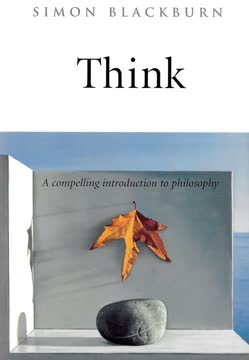نکات کلیدی
1. فلسفه مارکس از نقد هگل و سرمایهداری شکل گرفت
مارکس این ایده را که هگل را به زمین بیاورد، به کار گرفت و او نیز شروع به استفاده از روشهای هگل برای حمله به شرایط مادی و اقتصادی موجود انسانها کرد.
ریشههای هگلی. سفر فلسفی مارکس با نقد ایدئالیسم هگل آغاز شد. در حالی که هگل تاریخ را به عنوان پیشرفت ذهن یا روح میدید، مارکس این مفهوم را وارونه کرد و استدلال کرد که شرایط مادی و روابط اقتصادی، آگاهی و جامعه انسانی را شکل میدهند. این رویکرد ماتریالیستی پایه تحلیل مارکس از سرمایهداری و دیدگاه او برای تغییر اجتماعی شد.
نقد سرمایهداری. برخوردهای اولیه مارکس با ایدههای سوسیالیستی در پاریس و مشاهداتش از شرایط صنعتی در انگلستان او را به توسعه دیدگاه انتقادی نسبت به سرمایهداری سوق داد. او آن را به عنوان سیستمی میدید که در عین تولیدی بودن، نابرابری عمیق و بیگانگی ایجاد میکند. این نقد هسته کار مادامالعمر او را تشکیل داد و در اثر بزرگش "سرمایه" به اوج رسید.
2. مفهوم ماتریالیستی تاریخ: نیروهای اقتصادی جامعه را شکل میدهند
شیوه تولید زندگی مادی، فرآیند زندگی اجتماعی، سیاسی و فکری را به طور کلی تعیین میکند. این آگاهی انسانها نیست که وجودشان را تعیین میکند، بلکه برعکس، وجود اجتماعی آنهاست که آگاهیشان را تعیین میکند.
پایه اقتصادی و روبنا. مارکس استدلال کرد که سیستم اقتصادی یک جامعه (پایه) ساختارهای اجتماعی، سیاسی و ایدئولوژیک آن (روبنا) را تعیین میکند. این بدان معناست که قوانین، سیاست، فرهنگ و حتی دین توسط شرایط اقتصادی و روابط تولیدی زیرین شکل میگیرند.
ماتریالیسم تاریخی. به گفته مارکس، تاریخ از طریق شیوههای مختلف تولید (مانند فئودالیسم، سرمایهداری، سوسیالیسم) که توسط تضادهای بین نیروهای تولید (تکنولوژی، کار) و روابط تولید (مالکیت، ساختار طبقاتی) هدایت میشوند، پیشرفت میکند. این تضادها به درگیریهای طبقاتی و در نهایت به انقلابهای اجتماعی منجر میشوند که جامعه را دگرگون میکنند.
شیوههای تولید:
- کمونیسم ابتدایی
- جامعه بردهداری
- فئودالیسم
- سرمایهداری
- سوسیالیسم/کمونیسم
3. بیگانگی: سرمایهداری کارگران را از کار و انسانیتشان بیگانه میکند
کارگر زندگی خود را در شیء میگذارد و این بدان معناست که دیگر به او تعلق ندارد بلکه به شیء تعلق دارد... خارجیسازی کارگر در محصولش نه تنها به این معناست که کار او به یک شیء، یک وجود خارجی تبدیل میشود بلکه همچنین به این معناست که خارج از او، مستقل و بیگانه وجود دارد و به یک قدرت خودکفا در مقابل او تبدیل میشود، که زندگیای که به شیء داده است به او حمله میکند، خصمانه و بیگانه.
چهار نوع بیگانگی. مارکس چهار راه را شناسایی کرد که سرمایهداری کارگران را بیگانه میکند:
- از محصول کارشان
- از عمل تولید
- از گونهبودن (طبیعت انسانی)
- از دیگر کارگران
اثرات غیرانسانی. تحت سرمایهداری، مارکس استدلال کرد که کار به یک فعالیت خارجی و اجباری تبدیل میشود نه یک بیان خلاقانه انسانی. کارگران به کالاهایی تقلیل مییابند که کارشان در بازار خرید و فروش میشود. این بیگانگی فراتر از محل کار گسترش مییابد و تمام جنبههای زندگی و روابط انسانی را تحت تأثیر قرار میدهد.
4. ارزش اضافی: استثمار در قلب سرمایهداری
این واقعیت که کارگر تنها ارزش مبادلهای کار خود را به دست میآورد، نه ارزش استفادهای آن، به این معناست که برای کسب درآمد کافی برای تأمین خود باید یک روز کامل کار کند - مثلاً دوازده ساعت - در حالی که کار او ارزشهای استفادهای غذای لازم، لباس، سرپناه و غیره را در مثلاً شش ساعت تولید میکند.
نظریه ارزش کار. مارکس بر اساس اقتصاد کلاسیک استدلال کرد که ارزش یک کالا توسط زمان کار اجتماعی لازم برای تولید آن تعیین میشود. با این حال، او فراتر رفت تا آنچه را که به عنوان استثمار بنیادی در سرمایهداری میدید، افشا کند.
استخراج ارزش اضافی. مارکس استدلال کرد که سرمایهداران تنها برای نیروی کار (توانایی کار) کارگران پرداخت میکنند اما از ارزش کامل کار آنها سود میبرند. تفاوت بین آنچه کارگران دریافت میکنند و ارزشی که ایجاد میکنند، ارزش اضافی است که به عنوان سود توسط سرمایهدار تصاحب میشود. این استثمار منبع انباشت سرمایه و نابرابری طبقاتی است.
مثال:
- دستمزد روزانه کارگر: 100 دلار
- ارزش ایجاد شده در یک روز: 200 دلار
- ارزش اضافی استخراج شده: 100 دلار
5. مبارزه طبقاتی: نیروی محرک تغییر تاریخی
تاریخ تمام جوامع موجود تا کنون تاریخ مبارزات طبقاتی است.
ساختار طبقاتی دوتایی. مارکس جامعه را به طور بنیادی به دو طبقه اصلی تقسیم میکرد:
- بورژوازی: صاحبان وسایل تولید
- پرولتاریا: کارگرانی که نیروی کار خود را میفروشند
دیالکتیک تاریخی. مبارزه طبقاتی، به گفته مارکس، موتور تغییر تاریخی است. هر شیوه تولیدی تضادهای طبقاتی خود را ایجاد میکند که در نهایت به انقلاب و تأسیس یک نظم اجتماعی جدید منجر میشود.
انقلاب پرولتاریایی. مارکس پیشبینی کرد که تضادهای ذاتی سرمایهداری به سقوط آن منجر خواهد شد. پرولتاریا، به عنوان طبقه جهانی با "هیچ چیزی برای از دست دادن جز زنجیرهایشان"، بورژوازی را سرنگون کرده و جامعه سوسیالیستی را تأسیس خواهد کرد که در نهایت به کمونیسم منجر میشود.
6. کمونیسم: دیدگاه مارکس از جامعهای بدون طبقه و دولت
کمونیسم... راهحل واقعی تضاد بین انسان و طبیعت و بین انسان و انسان است. این راهحل واقعی مبارزه بین وجود و ذات، بین عینیت و خودتأییدی، بین آزادی و ضرورت، بین فرد و گونه است.
لغو مالکیت خصوصی. هسته دیدگاه کمونیستی مارکس مالکیت جمعی وسایل تولید بود که پایه استثمار طبقاتی را از بین میبرد.
تغییر طبیعت انسانی. مارکس معتقد بود که کمونیسم نه تنها روابط اقتصادی بلکه آگاهی انسانی را نیز تغییر خواهد داد. بدون بیگانگی و رقابت سرمایهداری، مردم آزاد خواهند بود تا پتانسیل کامل خود را به عنوان موجودات اجتماعی توسعه دهند.
جامعه بدون دولت. در مرحله نهایی کمونیسم، مارکس "از بین رفتن" دولت را پیشبینی کرد، زیرا تضادهای طبقاتی ناپدید میشوند و جامعه میتواند بر اساس اصل "از هر کس به اندازه توانش، به هر کس به اندازه نیازش" سازماندهی شود.
7. ماندگاری مارکس: نابرابری، جهانیسازی و بحران محیط زیست
نیاز به بازاری که به طور مداوم برای محصولاتش گسترش یابد، بورژوازی را بر روی تمام سطح جهان تعقیب میکند. باید در همه جا جا بگیرد، در همه جا مستقر شود، ارتباطات برقرار کند.
نابرابری پایدار. در حالی که پیشبینیهای مارکس درباره فقر و انقلاب به وقوع نپیوستهاند، بینشهای او درباره تمایل سرمایهداری به تمرکز ثروت همچنان مرتبط است. کار اقتصاددانانی مانند توماس پیکتی توجه جدیدی به نابرابری فزاینده جلب کرده است.
جهانیسازی. تحلیل مارکس از طبیعت توسعهطلبانه سرمایهداری بسیاری از جنبههای جهانیسازی مدرن، از جمله ایجاد بازار جهانی و انقلاب دائمی تولید را پیشبینی کرد.
بحران محیط زیست. برخی از اندیشمندان معاصر از نقد مارکس بر تمایل سرمایهداری به رشد بیپایان برای پرداختن به چالشهای محیط زیستی، به ویژه تغییرات اقلیمی، استفاده میکنند. "اکوسوسیالیستها" استدلال میکنند که غلبه بر سرمایهداری برای دستیابی به پایداری زیستمحیطی ضروری است.
حوزههای مرتبط ماندگار:
- نقد نابرابری اقتصادی
- تحلیل بحرانهای اقتصادی
- بینش در دینامیک جهانیسازی
- پایه برای نقدهای محیط زیستی سرمایهداری
آخرین بهروزرسانی::
FAQ
What's "Marx: A Very Short Introduction" about?
- Overview: The book provides a concise introduction to the life, ideas, and influence of Karl Marx, written by philosopher Peter Singer.
- Purpose: It aims to make Marx's complex theories accessible to general readers, offering a clear explanation of his central ideas.
- Content: The book covers Marx's biography, his philosophical development, his economic theories, and the impact of his ideas on history and contemporary thought.
- Series Context: It is part of the "Very Short Introductions" series, which offers brief overviews of a wide range of subjects.
Why should I read "Marx: A Very Short Introduction"?
- Understanding Marx: The book provides a foundational understanding of Marx's ideas, which have significantly influenced political, economic, and social thought.
- Relevance: Marx's theories continue to be relevant in discussions about capitalism, socialism, and economic inequality.
- Clarity: Peter Singer presents Marx's complex ideas in a clear and accessible manner, making it suitable for readers new to Marxist theory.
- Contextual Insight: The book places Marx's ideas within the historical and philosophical context, enhancing comprehension of his impact.
What are the key takeaways of "Marx: A Very Short Introduction"?
- Materialist Conception of History: Marx's theory that economic forces drive historical change and shape society's structure.
- Alienation: The concept that under capitalism, workers are alienated from the products of their labor, leading to a loss of freedom and self-realization.
- Surplus Value: Marx's economic theory that capitalists profit by extracting surplus value from workers' labor.
- Revolution and Communism: Marx's belief in the eventual overthrow of capitalism by the proletariat, leading to a classless, communist society.
What is the materialist conception of history according to Marx?
- Economic Base: Marx argues that the economic structure of society (the base) determines its legal, political, and ideological superstructure.
- Productive Forces: The development of productive forces (technology, labor) drives historical change and societal evolution.
- Class Struggle: History is characterized by class struggles, which arise from conflicts between different economic classes.
- Inevitable Change: Marx believed that these economic forces would inevitably lead to the collapse of capitalism and the rise of communism.
How does Marx define alienation in "Marx: A Very Short Introduction"?
- Worker's Alienation: Workers are alienated from the products of their labor, which are owned and controlled by capitalists.
- Loss of Self: This alienation leads to a loss of self and a disconnection from one's own humanity and creativity.
- Social Relations: Alienation extends to social relations, where individuals see each other as competitors rather than collaborators.
- Resolution: Marx believed that communism would resolve alienation by abolishing private property and enabling collective ownership.
What is surplus value in Marx's economic theory?
- Definition: Surplus value is the difference between the value produced by labor and the wages paid to the laborer.
- Capitalist Profit: Capitalists extract surplus value from workers, which is the source of their profit.
- Labor Exploitation: This process is seen as exploitation, as workers do not receive the full value of their labor.
- Economic Critique: Surplus value is central to Marx's critique of capitalism, highlighting inherent inequalities in the system.
How does Peter Singer address Marx's relevance today?
- Contemporary Issues: Singer discusses how Marx's ideas remain relevant in addressing modern issues like economic inequality and globalization.
- Critique of Capitalism: Marx's critique of capitalism's tendency to concentrate wealth and power is still pertinent.
- Environmental Concerns: The book touches on how Marxist ideas can inform discussions on environmental sustainability and capitalism's impact on nature.
- Philosophical Insights: Marx's philosophical insights into human nature and freedom continue to influence contemporary thought.
What are the best quotes from "Marx: A Very Short Introduction" and what do they mean?
- "The weapon of criticism cannot, of course, supplant the criticism of weapons; material force must be overthrown by material force." This quote highlights Marx's belief in the necessity of revolutionary action to achieve societal change.
- "The philosophers have only interpreted the world in various ways; the point is, to change it." Engraved on Marx's tombstone, this quote emphasizes the importance of practical action over mere theoretical interpretation.
- "Communism is the riddle of history solved." This reflects Marx's view that communism would resolve the contradictions and conflicts inherent in capitalist societies.
How does Peter Singer explain Marx's concept of freedom?
- Beyond Liberal Freedom: Marx's concept of freedom goes beyond the liberal idea of non-interference, focusing on collective control over social and economic conditions.
- True Freedom: True freedom, for Marx, involves the ability to shape one's own life and society, free from economic constraints.
- Collective Action: Marx believed that collective action and planning are necessary to achieve true freedom for all.
- Critique of Capitalism: Capitalism, according to Marx, limits freedom by subjecting individuals to the impersonal forces of the market.
What role does the proletariat play in Marx's theory?
- Revolutionary Class: The proletariat, or working class, is seen as the revolutionary class that will overthrow capitalism.
- Universal Sufferings: Marx believed the proletariat's universal sufferings would drive them to seek a complete transformation of society.
- Agent of Change: The proletariat is the agent of change, realizing the potential for human freedom and ending alienation.
- Philosophical Weapon: Marx saw the proletariat as the material force that would realize the philosophical ideals of freedom and equality.
How does "Marx: A Very Short Introduction" address Marx's predictions about capitalism?
- Predictions: Marx predicted that capitalism would lead to increasing inequality, falling rates of profit, and eventual collapse.
- Critique of Predictions: Singer discusses how many of Marx's predictions have not come to pass, particularly in industrialized nations.
- Relevance of Critique: Despite inaccuracies, Marx's critique of capitalism's tendencies remains relevant in discussions of economic inequality.
- Philosophical Legacy: Marx's philosophical insights continue to influence debates on freedom, human nature, and societal change.
How does Peter Singer view Marx's impact on modern thought?
- Influence on Disciplines: Marx's ideas have profoundly influenced history, sociology, philosophy, and the arts.
- Enduring Legacy: Marx's critique of capitalism and his vision of a classless society continue to inspire political movements and academic discourse.
- Complex Legacy: Singer acknowledges the complexity of Marx's legacy, including both the positive and negative outcomes of Marxist-inspired regimes.
- Philosophical Contributions: Marx's contributions to understanding human freedom and societal structures remain significant in contemporary thought.
نقد و بررسی
کتاب مارکس: یک مقدمهی بسیار کوتاه نقدهای متفاوتی دریافت میکند. خوانندگان از مرور مختصر ایدهها و زندگینامهی مارکس قدردانی کرده و نوشتار شفاف سینگر را تحسین میکنند. با این حال، برخی نگرش تحقیرآمیز سینگر نسبت به پیشبینیهای اقتصادی مارکس و تفسیر او از مارکسیسم را مورد انتقاد قرار میدهند. این کتاب به عنوان نقطهی شروع خوبی برای درک فلسفهی مارکس دیده میشود، اما خوانندگان به احتمال وجود تعصب در تحلیل سینگر اشاره میکنند. برخی آن را برای درک مفاهیم کلیدی مارکسیستی مفید میدانند، در حالی که دیگران معتقدند که عمق کافی ندارد و ایدههای مارکس را نادرست نشان میدهد.
Very Short Introductions Series Series

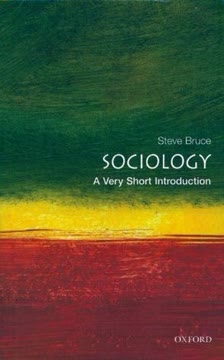
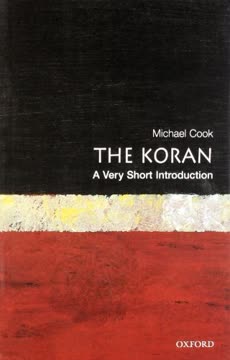

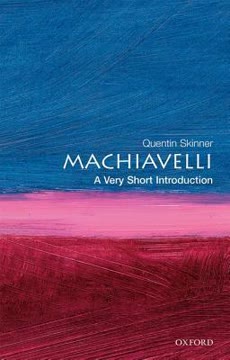


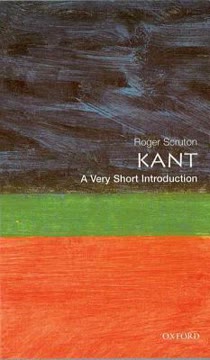
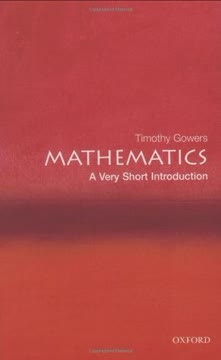
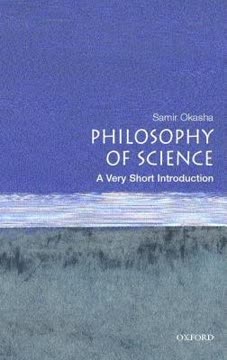
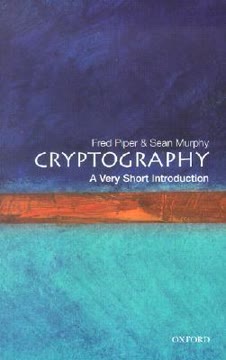
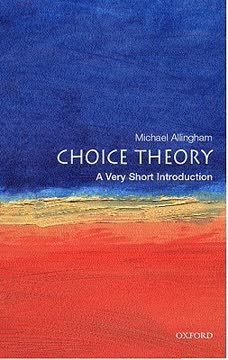
Similar Books
